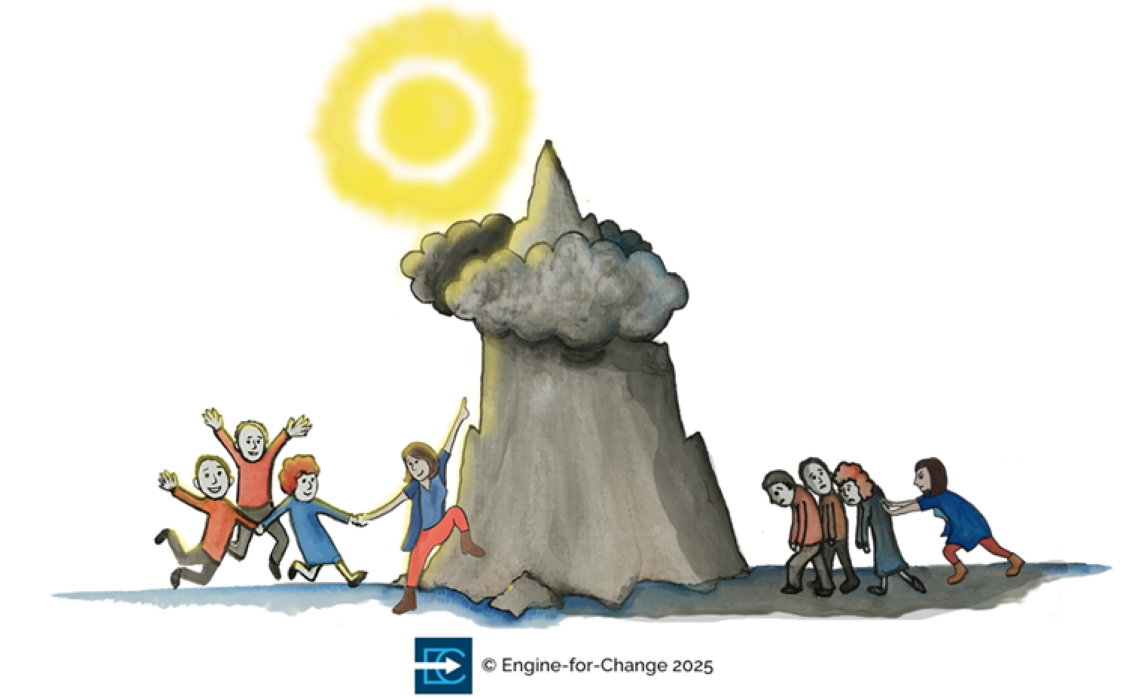Knowledge is identified as a multi-faceted concept, and is distinct from information and data. Data has been defined by Haridimos Tsoukas and Efi Vladimirou as raw entities, and information is understood as a meaningful pattern within these raw entities. Knowledge can be understood as a concept for solving problems. Gee-Woo Bock evaluates knowledge as a combination of rules, procedures, beliefs and skills that positively contribute to solving organizational problems. The key take-away for executives is that knowledge is a resource that enables organizations to solve problems and create value through improved performance and it is this point that will narrow the gaps of success and failure leading to more successful decision-making. Managing knowledge is not anything new, scholars have considered the various processes involved. A good example of this, executives can look at three step processes of knowledge accumulation, integration, and reconfiguration. This model for managing knowledge takes a strategic process oriented approach and is relevant to change management.
Knowledge Accumulation
Executives build a climate of openness for individuals to exchange ideas. Knowledge is accumulated by creating new approach to gathering, evaluating, and disseminating information throughout the company. Executives can inspire people to create new ideas and develop effective mechanisms to acquire knowledge from various sources such as suppliers, customers, business partners, and competitors. This is similar to a value-chain approach. Executives need to first support this approach for the model to work because they play a strategic role in expanding the knowledge accumulation through applying incentives as mechanisms to develop a more innovative climate and managing effective tools to acquire knowledge from external sources. In doing this process, executives and change practitioners can particularly develop a workplace which is effective in:
- Acquiring knowledge about new products/services within our industry.
- Benchmarking performance with competitors or industry.
- Using feedback to improve subsequent practices.
- Utilizing teams (e.g. committees or management teams) to manage knowledge resources.
- Developing and implementing education or training programs.
- Carrying out a career path program or recruitment program to acquire experts.
- Conducting organizational events (such as a “knowledge contest” or “knowledge fair”) that promote knowledge activities.
Knowledge Integration
Executives then integrate knowledge internally to enhance the effectiveness and efficiencies in various systems and processes, as well as to be more responsive to market changes. Accumulated knowledge is synthesized to produce higher quality outcomes. Thus, knowledge integration focuses on monitoring and controlling knowledge management practices, evaluating the effectiveness of current knowledge, defining and recognizing core knowledge areas, coordinating expert opinions, sharing organizational knowledge, and scanning for new knowledge to keep the quality of their services continuously improving. In doing this process, executives and change practitioners can particularly develop a workplace which is effective in:
- Monitoring or controlling organizational knowledge to keep product or services in line with market requirements.
- Regularly assessing knowledge requirements according to environmental changes.
- Linking the knowledge sharing system using various software and programmes.
- Defining “core knowledge” or “core competence” areas.
- Using expert groups to evaluate the quality and effectiveness of organizational knowledge.
- Disseminating organizational knowledge among employees.
- Rewarding individuals or teams based on the quality of knowledge generated.
Knowledge Reconfiguration
It is important for executives to reconfigure organizational knowledge. Executives are aware of networking with business partners is a key activity for organizations to enhance knowledge exchange. Networking is a critical concern for executives in this process is developing alliances with partners in external environments. Executives and their expert groups and/or steering committees are the ones who can make final decisions about developing alliances with business partners. Executives, therefore, need to understand what it is about the organization’s capabilities that allow the organization to develop alliances with business partners and interact with other organizations. In doing this process, executives and change practitioners can particularly develop a workplace which is effective in:
- Creating knowledge alliances with suppliers, customers, or other partners.
- Sharing knowledge management visions and goals with external partners (such as suppliers and customers or other partners) to develop collaborative activities, shared goals and trust-based relationships with them.
- Extending (or linking) knowledge related policies or rules (measurement, rewards) with external partners (such as customers, suppliers or other partners).
- Linking our knowledge sharing system with external partners (such as customers, suppliers or other partners).
- Facilitating and implementing activities such as conferences, contests, seminars with external partners.
In conclusion, there are some executives and change practitioners that like to look at academic journals but unfortunately the crossover literature has not reached them enough. This article attempts to blend scholarly concepts with real world application. Executives and change practitioners now know that applying knowledge management using the process perspective is advantageous and good sound strategic implementation. I walk executives and change practitioners through a process of knowledge accumulation, integrating knowledge into day-to-day operations, and a continuous reconfiguration to recognize the changes occurring in external environments and respond to them quickly and effectively.
References
Bock, G. (2001). Determinants of the Individual’s Knowledge Sharing Behavior in the Organization: The Theory of Reasoned Action Perspective (Unpublished doctoral dissertation). Korea Advanced Institute of Science and Technology, South Korea.
Tsoukas, H., & Vladimirou, E. (2001). What is Organizational Knowledge?. Journal of Management Studies, 38 (7), 973-993.







